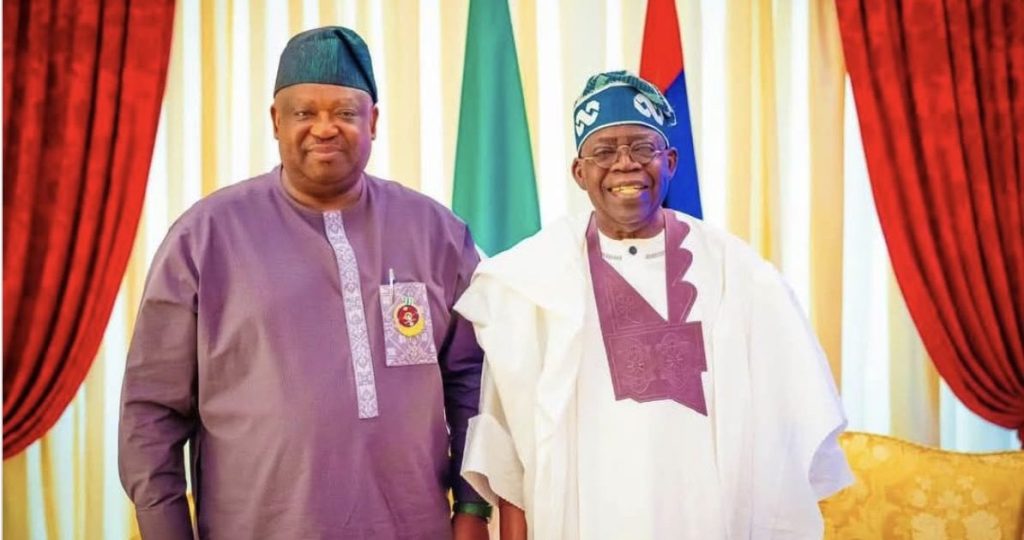The North-Central All Progressives Congress (APC) Forum has thrown its weight behind President Bola Tinubu and Plateau State Governor Caleb Mutfwang for second terms in office, setting the stage for a potentially intriguing political scenario in the North-Central region. The forum’s endorsement of Mutfwang, a member of the opposition Peoples Democratic Party (PDP), alongside their own party’s president, signals a departure from traditional partisan lines and highlights the forum’s prioritization of performance over strict party affiliation. This move has been met with internal dissent within the Plateau APC, raising questions about party unity and the potential ramifications of such cross-party endorsements.
The forum’s decision, reached during an expanded stakeholders’ meeting, emphasizes their belief in Mutfwang’s effective governance, despite his differing political allegiance. Their explicit adoption of Mutfwang’s “Green Cap Movement” for the 2027 governorship election underscores their commitment to supporting his continued leadership. This endorsement is coupled with their reaffirmed support for President Tinubu’s second term bid, citing his “exceptional performance” as justification. The forum’s dual endorsement strategy reflects a pragmatic approach to politics, seemingly prioritizing perceived good governance over rigid adherence to party lines. This approach, while potentially beneficial in terms of regional development, carries the risk of intra-party friction and could complicate the political landscape in the run-up to the 2027 elections.
The North-Central APC Forum’s call for Mutfwang to cross-carpet and join the APC further complicates the political dynamics. They argue that aligning with the ruling party at the national level would be advantageous for both Mutfwang and Plateau State, potentially facilitating greater access to federal resources and influence. However, this proposition presents a significant challenge for Mutfwang, requiring him to navigate the complexities of party loyalty and weigh the potential benefits of switching allegiance against the potential backlash from his current PDP base. The forum’s overture underscores their conviction in Mutfwang’s leadership and their desire to consolidate political power within the APC, even if it means embracing a prominent figure from the opposition.
Central to the forum’s endorsement is their interpretation of the Green Cap Movement. They reject the notion that it is intrinsically tied to the PDP, asserting that it represents a broader ideology of reform and accountability, symbolized by the green cap itself. This interpretation allows them to bridge the partisan divide and justify their support for Mutfwang, framing it as an alignment of values rather than a purely political maneuver. The forum’s insistence on the movement’s non-partisan nature aims to neutralize potential criticism and broaden its appeal, potentially attracting support from individuals across the political spectrum who resonate with its message of change.
However, the forum’s actions have not been without controversy. They have directly challenged the Plateau APC executive, led by Rufus Bature, who criticized the adoption of the Green Cap Movement. The forum demands a retraction of Bature’s statement, escalating the internal conflict within the state chapter of the APC. Furthermore, they refute claims that the forum lacks legitimacy within the party structure, emphasizing their official recognition at the national level as representatives of North-Central stakeholders. This internal power struggle highlights existing tensions within the APC and underscores the potential for fragmentation and disunity arising from the forum’s unconventional endorsement strategy.
The North-Central APC Forum’s critique of the Plateau APC executive for their perceived electoral failures in the 2023 elections adds another layer of complexity to the situation. By pointing to the state chapter’s inability to deliver victories for the party and President Tinubu, the forum implicitly justifies their decision to look beyond traditional party lines for leadership. This criticism reinforces their narrative of prioritizing performance over party loyalty and further exacerbates the internal divisions within the Plateau APC. The fallout from this internal conflict remains to be seen, but it has the potential to significantly impact the political landscape of Plateau State in the lead-up to the 2027 elections.


